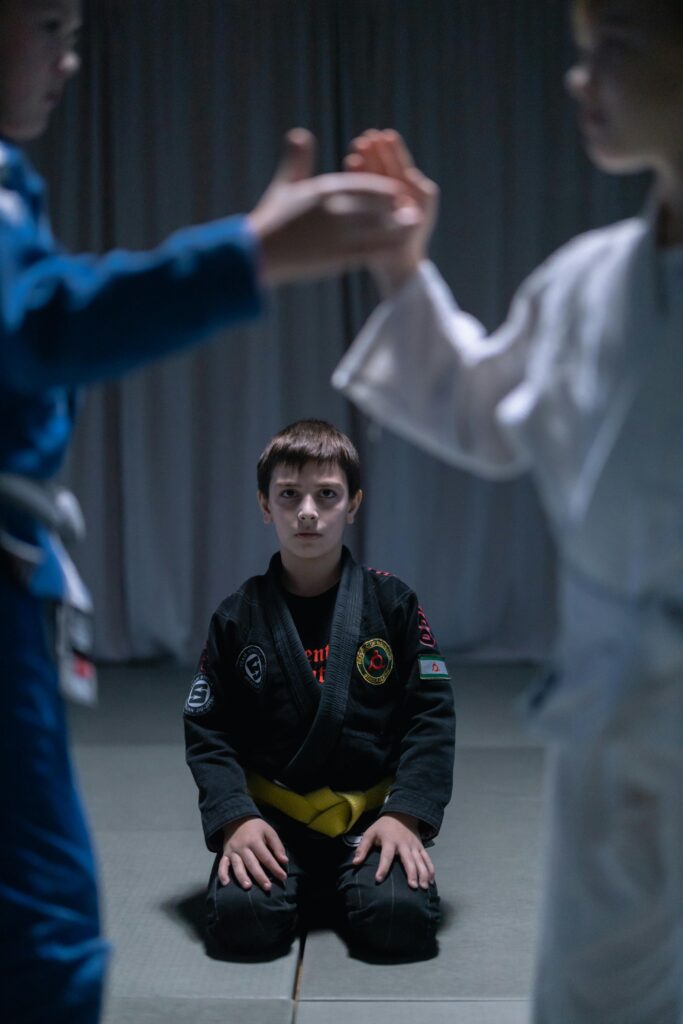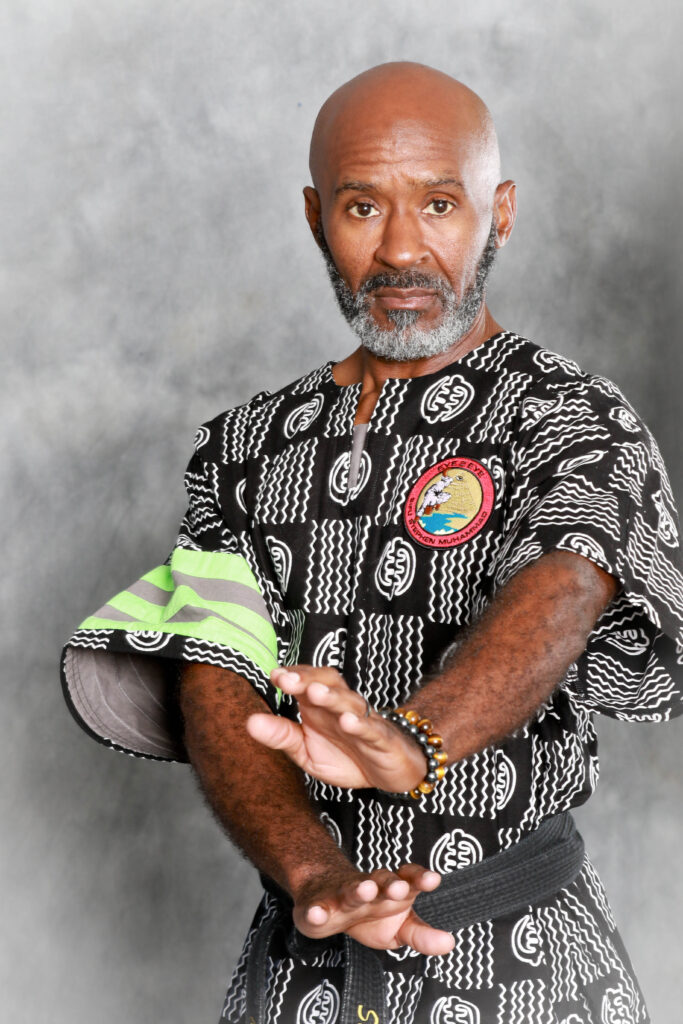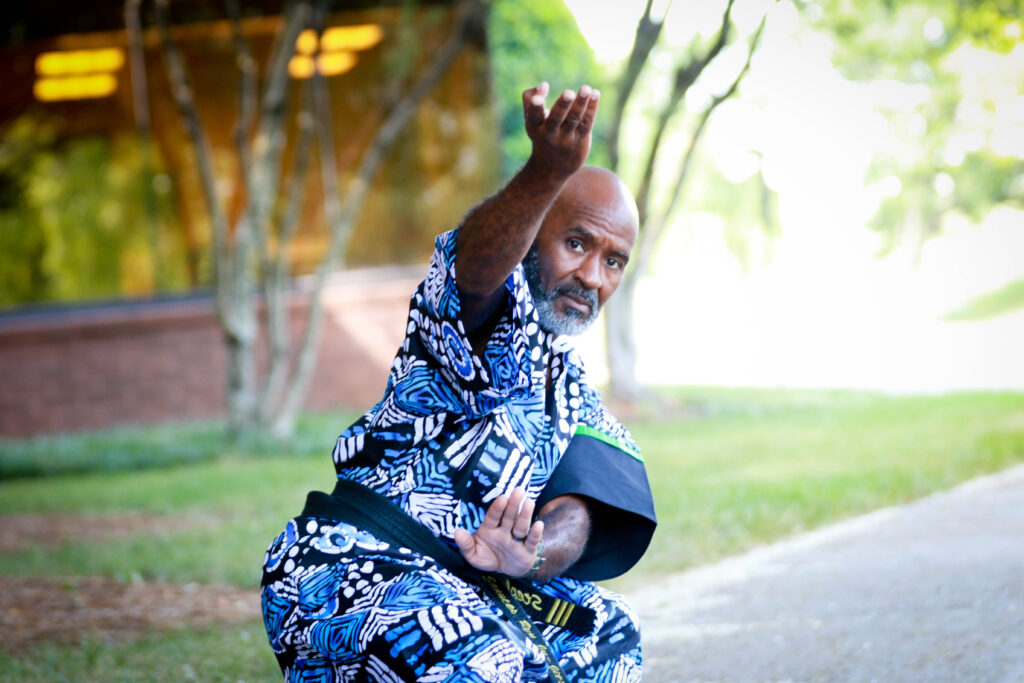Mental strength is often overlooked in self-defense, but I’ve seen it make all the difference for kids. When a child can stay calm, think clearly, and make quick decisions, it’s like they have an invisible shield.
Sure, learning kicks and punches matters, but a strong mind is what turns those moves into real-life self-defense. It’s what helps them stand their ground confidently without ever having to throw a punch.
I like to think of it as their endless well of inner strength that’s always there to draw from, no matter what happens. With that foundation, physical techniques become a backup plan, not the first line of defense. So, let’s explore how building mental strength can truly empower kids.
What is Mental Strength in Self-Defense?
Mental strength in self-defense is all about having the confidence, discipline, and self-control needed to face a challenge calmly and effectively.
It’s the ability to keep your cool when confronted, to think clearly under pressure, and to make quick decisions without being overwhelmed by fear or anxiety.
For kids, this kind of mental fortitude can be transformative. Whether it’s standing up to a bully at school or staying calm in an unfamiliar environment, mental strength is the foundation that supports every action they take.
Physical techniques are important, but without the mental strength to use them properly, those techniques lose their effectiveness.
The Role of Mental Toughness in Handling Conflict
When I talk to kids in self-defense classes, I often emphasize that being tough doesn’t mean being aggressive or combative. It means staying calm and collected, even when emotions are running high.
Mental toughness helps kids to assess a situation quickly, understand what’s happening, and decide on the best course of action.
This is crucial in self-defense because, often, the goal isn’t to fight but to avoid conflict altogether. Mental strength helps kids to choose their battles wisely and, in many cases, to de-escalate a situation before it turns physical.
The Connection Between Mental and Physical Resilience
Mental strength and physical resilience go hand-in-hand. A strong mind helps kids push through physical challenges during training and stay focused during practice.
When they’re learning new techniques or struggling to keep up with a class, mental strength gives them the perseverance to keep going.
It’s about believing in their abilities and knowing they can overcome obstacles, both in and out of the dojo.
Why Mental Strength Outweighs Physical Strength for Kids
Let’s be honest—kids aren’t always the biggest or the strongest in a confrontation. But you know what? They don’t have to be. Mental strength can give them an edge over an aggressor, regardless of size or physical capability.
A child who has confidence and self-belief won’t freeze up when confronted. They’ll know how to stand tall, project calmness, and take control of the situation without escalating it.
Building Confidence Through Self-Defense Training
I’ve seen countless children come into self-defense classes with low self-esteem, only to leave with their heads held high after a few months. Confidence is built gradually through small successes and positive reinforcement.
When kids master a new move or overcome a fear, they realize they’re capable of more than they thought. This growing confidence spills over into every area of their lives.
Eye2Eye Combat’s Young Tiger program, for example, focuses on this very principle. It’s designed not just to teach kids self-defense moves but to build their inner confidence, making them feel strong and capable in any situation.
Developing Problem-Solving Skills in High-Stress Situations
Another key aspect of mental strength is the ability to think on your feet. In a self-defense scenario, quick decision-making is crucial.
Should they try to run? Should they yell for help? Or is it necessary to physically defend themselves? Kids who are mentally strong can process these questions and come to a decision more quickly than those who are paralyzed by fear or indecision.
This doesn’t happen overnight. We work on building these problem-solving skills through role-playing exercises and realistic scenarios. The goal is to help kids develop a “thinking mind” that remains calm under pressure.
Techniques to Enhance Mental Strength in Kids
Now, you might be wondering—how do you actually build mental strength in kids? There are several techniques we use that have proven to be effective.
Visualization Techniques for Mental Clarity
Visualization is a powerful tool. By encouraging kids to visualize different scenarios, they get to practice handling situations in their minds before they face them in reality. I’ve seen this technique work wonders.
When kids imagine themselves successfully handling a conflict, they’re more likely to react confidently and effectively when the time comes.
Breathing Exercises to Maintain Calm
Sometimes, staying calm is all it takes to turn a confrontation around. Breathing exercises help kids control their emotions and reactions.
Deep breathing activates the body’s relaxation response, which counters the stress response triggered by fear or anxiety. I often incorporate breathing exercises into the beginning and end of each class to reinforce this practice.
Mindfulness Practices for Better Self-Control
Mindfulness isn’t just for adults trying to deal with stress—it’s incredibly beneficial for kids too. Teaching kids to be present, focus on their breath, and observe their thoughts without judgment helps them stay grounded.
When they’re mindful, they’re less likely to be swept away by fear or anger, which means they can maintain self-control even when provoked.
The Psychological Benefits of Self-Defense Training for Kids
There’s no doubt that self-defense training benefits kids physically, but the psychological benefits are just as significant. I’ve witnessed these benefits unfold in numerous children over the years.
Reduced Anxiety and Fear
Knowing that they have the skills to defend themselves makes kids feel safer and less anxious. They’re not afraid to try new things or go to new places because they know they can handle themselves.
This confidence reduces the fear that often accompanies unfamiliar or potentially threatening situations.
Enhanced Focus and Discipline
Self-defense training requires discipline and focus. Kids learn to pay attention to details, follow instructions, and stay committed to their practice. These qualities don’t just make them better at self-defense; they also improve their performance in school and other activities.
How Parents Can Support Their Child’s Mental Strength
As a parent, you play a crucial role in reinforcing your child’s mental strength. You’re their first and most important coach. Here’s how you can help.
Encouragement and Positive Reinforcement
Kids thrive on encouragement. Praise them not just for their successes but for their efforts and persistence. When they struggle, remind them that it’s okay to fail and that what matters is getting back up and trying again.
Your support will help them build resilience and keep pushing forward, even when things get tough.
Setting Realistic Expectations and Goals
It’s important to set realistic goals for your child’s progress. Don’t expect them to become a self-defense master overnight.
Celebrate small achievements and set incremental goals that they can work toward. This will keep them motivated and prevent them from feeling overwhelmed.
Practicing Scenarios at Home
Role-playing scenarios at home can be a great way to reinforce what your child learns in class.
Practice how they would handle different situations, from dealing with a school bully to handling a stranger who makes them uncomfortable. The more they practice, the more instinctive their reactions will become.
The Importance of Professional Guidance
While parents can do a lot to support their child’s development, professional guidance from a qualified instructor is invaluable.
A structured class provides a safe environment for kids to learn and practice techniques. It also exposes them to different peers, helping them build social skills and learn from others’ experiences.
Programs like Eye2Eye Combat’s Young Tiger class are specifically designed to address the unique needs of children. The curriculum not only focuses on physical techniques but also on building mental strength, confidence, and a proactive mindset.
This comprehensive approach ensures that kids are prepared for real-world scenarios, both physically and mentally.
Help Your Child Build True Confidence and Strength—Join Eye2Eye Combat!
If there’s one thing I’ve learned over the years, it’s that self-defense is about much more than learning how to throw a punch or execute a takedown. It’s about helping kids develop the kind of mental strength that stays with them long after they leave the dojo.
Confidence, resilience, and calmness in the face of adversity are what truly make the difference. And that’s exactly what we focus on at Eye2Eye Combat.
Our programs are designed to equip your child with not only physical skills but also the inner confidence and mental clarity that empower them to handle any challenge life throws their way.
If you’re ready to see your child transform into a stronger, more self-assured version of themselves, check out Eye2Eye’s range of youth self-defense classes.
Let’s give your child the tools they need to thrive—not just in self-defense, but in every area of their lives. Join Eye2Eye Combat today and watch your child’s confidence soar!
FAQs
Why is mental self-defense important?
Mental self-defense is crucial because it’s what keeps you calm and clear-headed in stressful situations. It’s not just about reacting physically but also about knowing how to stay in control, assess the situation, and make the right decisions quickly. With a strong mind, physical techniques become even more effective.
Does strength help in self-defense?
Strength can help, but it’s not the most important factor. What really matters is having the right mindset and techniques. Self-defense is more about using strategy, leverage, and being aware of your surroundings. Even if you’re not the strongest, you can still effectively protect yourself with the right training.
How is warrior mindset important for self-defense?
A warrior mindset means being mentally prepared to face challenges head-on. It’s about confidence, focus, and resilience. With this mindset, you’re better equipped to handle confrontations because you stay calm under pressure and can make smart decisions quickly. It’s the foundation that turns physical skills into powerful self-defense tools.
What do you teach kids about self-defense?
We teach kids that self-defense isn’t about fighting—it’s about staying safe and knowing how to avoid trouble. Our focus is on building confidence, awareness, and teaching them when to use their skills and, more importantly, when to walk away. We also emphasize respect, self-control, and using their techniques responsibly.
At what age should a child learn self-defense?
Kids can start learning self-defense as early as 5 or 6 years old, depending on their maturity and interest level. At this age, they’re like sponges—quick to learn and adapt. Starting young helps build good habits, confidence, and respect for others while providing skills that can grow with them over time.





